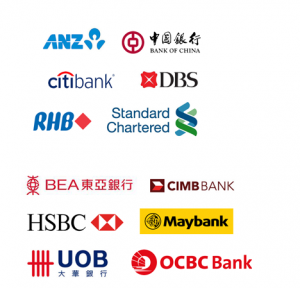Across the entire financial sector, the proportion is about 43 per cent, reflecting Singapore’s role as an international financial centre, says Monetary Authority of Singapore (MAS)
Responding to a letter writer to Straits Times Forum, the MAS said protecting and growing Singaporean jobs, especially in current economic conditions, is a top priority.
 The letter writer, Raymond Koh Bock Swi, said in his letter: “I can say categorically that in the past two decades, many foreigners hired in Singapore’s finance sector have been for upper-middle to senior management positions.” Mr Koh is a retired banker.
The letter writer, Raymond Koh Bock Swi, said in his letter: “I can say categorically that in the past two decades, many foreigners hired in Singapore’s finance sector have been for upper-middle to senior management positions.” Mr Koh is a retired banker.
Mr Koh pointed out that once hired, these foreign staff can easily and in a short time secure their permanent resident (PR) status in Singapore.
“Therefore, when analysing the actual makeup of local staff, it is misleading to combine the Singaporeans and PRs. The loss of lucrative professional, manager, executive and technician jobs to foreigners is a touchy issue in Singapore in the current economic circumstances.”
In highlighting that that the banking industry in Singapore is a fairly mature one, he made the following suggestions:
- Banks should provide the Monetary Authority of Singapore and Manpower Ministry with their workforce composition, detailing local hires (Singapore citizens only) versus others (foreign hires and PRs). The percentage of Singaporeans making up the “senior” staff should also be provided.
- A minimum percentage of hired locals against the total workforce should be considered, like 90 per cent for Singapore banks and 85 per cent for non-Singapore banks.
- It seems quite generous to have some banks take in 30 per cent foreigners for their commercial banking operations in Singapore.
- Any exception to the workforce composition should require special approval from the regulatory or government authorities, again with rationale supporting justification.
- Certain key positions, like human resource head, operations head and compliance roles, should be held only by locals (unless exceptionally justified). Where foreign expertise is needed, there should be clear transition plans to train Singaporeans to assume the said responsibilities in the coming years.
“The financial sector is an important one for Singapore but we need to constantly train, upgrade and protect these jobs for Singaporeans, while concurrently welcoming foreign investments.”
Table of Contents
In strongly urging the authorities to more closely scrutinise the situation in our financial sector, Mr Koh said, “it has been common market knowledge that certain big, long established foreign banks have been sidelining Singaporean talent in favour of foreign hires.”
In replying to Mr Koh, MAS’s Managing Director, Ravi Menon, said that he has asked his team to reach out to Mr Koh for further views and suggestions. He added that MAS has established a $125 million package earlier this year to encourage financial institutions (FIs) to retain, train, and hire Singaporeans.
Mr Menon said, “We want to see a strong Singaporean core complemented by high-quality and diverse foreign talents in every major FI.”
MAS said that it closely monitors these FIs’ workforce profile by locals (citizens and PRs separately) and foreigners, broken down by seniority, business function, qualifications, etc. MAS further engages FIs’ senior management on their workforce profiles and has plans to grow the Singaporean core. Mr Menon assured that MAS will intensify these engagements with the financial sector.
“While not yet where we want to be for every FI, the picture across the sector as a whole is better than often portrayed. MAS estimates that citizens make up 70 per cent of the sector’s workforce, with PRs making up another 14 per cent. Singaporeans are well represented across business functions, but we need to improve the local proportion in areas like technology and risk management.”
MAS estimates Singapore citizens account for about 70 per cent of senior management roles in retail banks’ local functions.
Across the entire financial sector, the proportion is about 43 per cent. MAS said that this reflects Singapore’s role as an international financial centre.
“As our financial sector attracts more regional and global HQ functions, it creates more good jobs and opportunities for Singaporeans. But it also means a higher proportion of foreigners in senior management in these functions as FIs understandably draw from a global talent pool to fill these positions.”
“Even so, a good number of Singaporeans have assumed regional leadership roles. More Singaporeans are taking on overseas positions, typically a prerequisite for these leadership roles,” said Mr Menon. He did not specify what these numbers were.
“MAS has been working with FIs to develop a strong local leadership pipeline, and the industry is making progress,” added Mr Menon.
“My colleagues and I are committed to growing the Singaporean core in the financial sector. We do this by working with our FIs to develop Singaporeans: building critical skills, broadening capabilities, gaining international exposure, and ensuring equal opportunity to take on the many good jobs and leadership roles that our financial centre will continue to create.”
Concerns that Singaporeans are not adequately represented in Singapore’s financial sector is not a new one. Seven years ago, in responding to a dialogue participant’s concern that there were high numbers of foreigners in the financial sector, Mr Tharman Shanmugaratnam acknowledged that the Government has a responsibility to make sure that Singaporeans are adequately represented there.
Mr Tharman, who was also the Finance Minister and the Chairman of MAS then, added that it is also important for Singaporeans to take on a good spread of positions, including the best jobs in the front office for treasury and trading.
Mr Tharman assured the dialogue participants that in 2012, MAS together with the Ministry of Manpower, started “very active discussions” with banks here about their plans to develop the “Singapore core”.
In explaining that the local core in banking is “not just about numbers”, Mr Tharman added:
“It’s about proactive career development, and making sure that Singaporeans are represented in the areas of the banks which are going to see growth opportunities. It’s making sure there is a good spread of opportunities for Singaporeans within the different banking functions. Some of them have Singaporeans much better represented in the range of functions. In some others, Singaporeans tend to be very much in the middle and back office.”
Just like Mr Menon, Mr Tharman too did not specify details, but said differences in hiring mixes between the banks have been observed.






